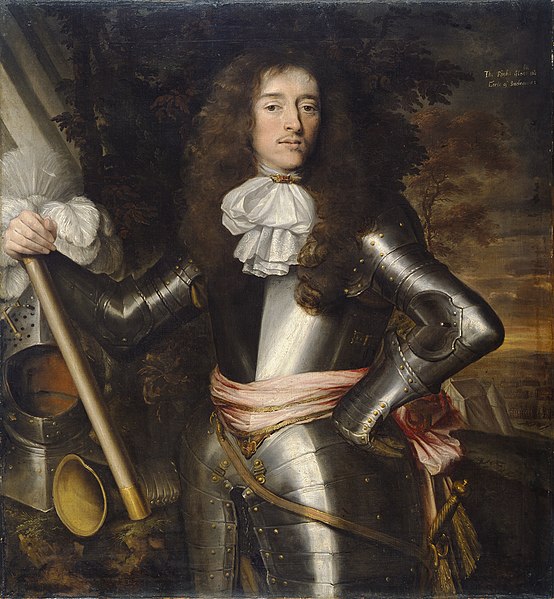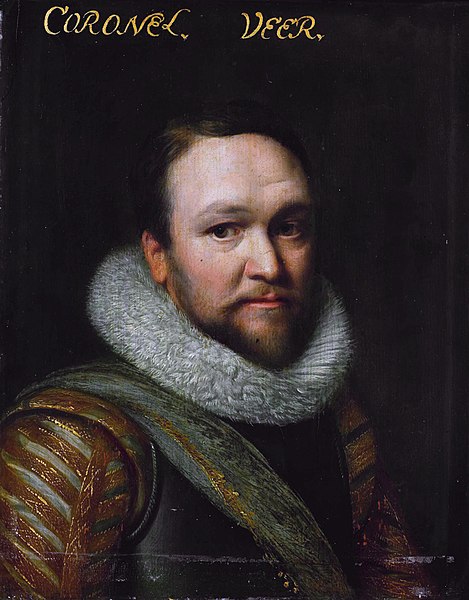Sir Hardress Waller was born in Kent and settled in Ireland during the 1630s. A first cousin of Parliamentarian general William Waller, he fought for Parliament in the Wars of the Three Kingdoms, becoming a leading member of the radical element within the New Model Army. In 1649, he signed the death warrant for the Execution of Charles I, and after the Stuart Restoration in 1660 was condemned to death as a regicide.
Mont Orgueil, where Waller died in 1666
From 1642 to 1644, Waller served under Earl of Inchiquin, Protestant leader in Munster
By 1646, Waller had become an admirer of Oliver Cromwell, whom he supported throughout The Protectorate
Sir William Waller JP was an English soldier and politician, who commanded Parliamentarian armies during the First English Civil War. Elected MP for Andover to the Long Parliament in 1640, Waller relinquished his military positions under the Self-denying Ordinance in 1645. Although deeply religious and a devout Puritan, he belonged to the moderate Presbyterian faction, who opposed the involvement of the New Model Army in politics post 1646. As a result, he was one of the Eleven Members excluded by the army in July 1647, then again by Pride's Purge in December 1648 for refusing to support the Trial of Charles I, and his subsequent execution in January 1649.
Portrait by Cornelius Johnson, c. 1643
Sir Horace Vere; Waller served with him in Venice and Holland
Ralph Hopton, Waller's close friend and opponent






